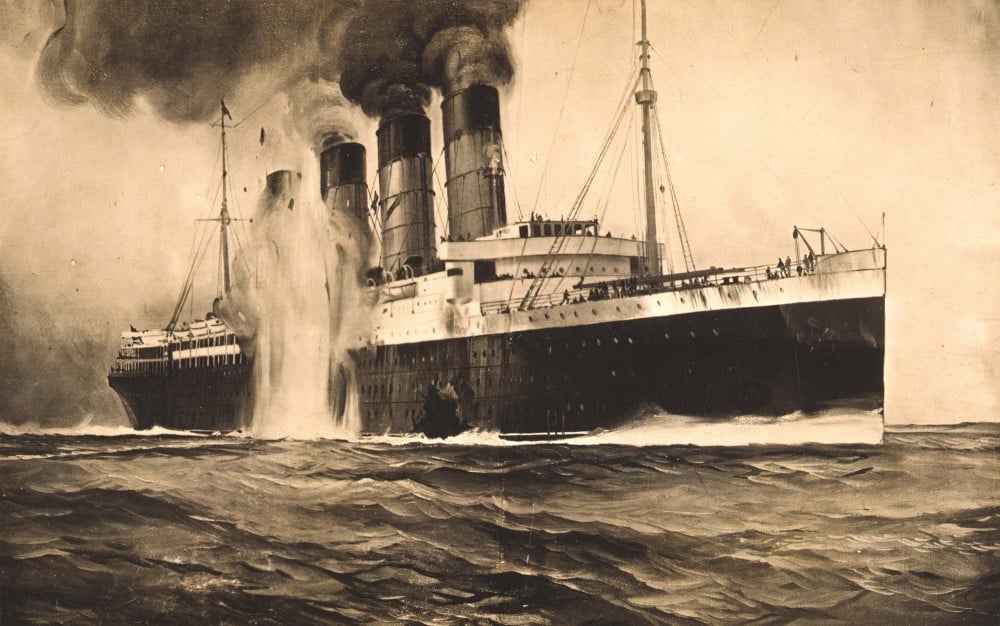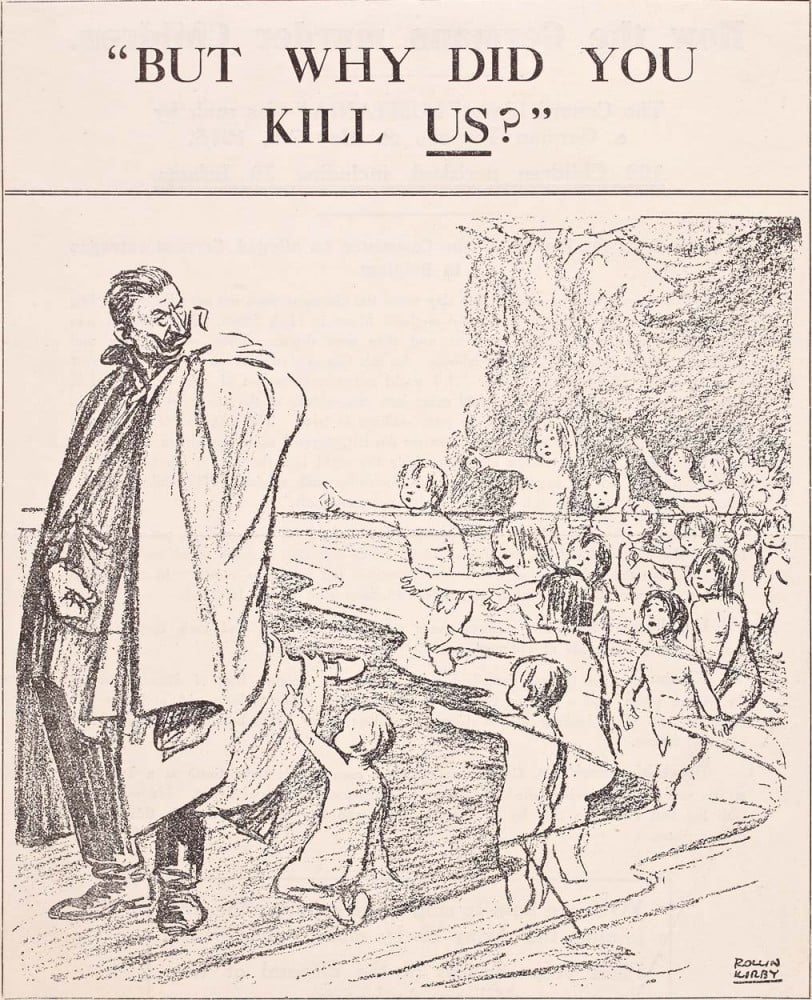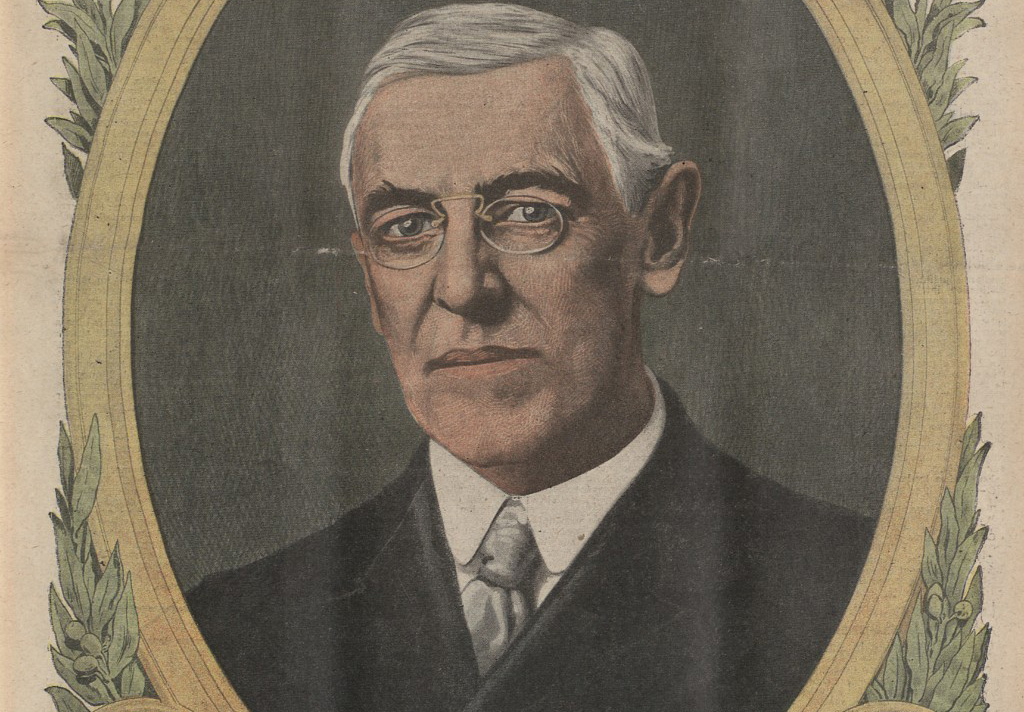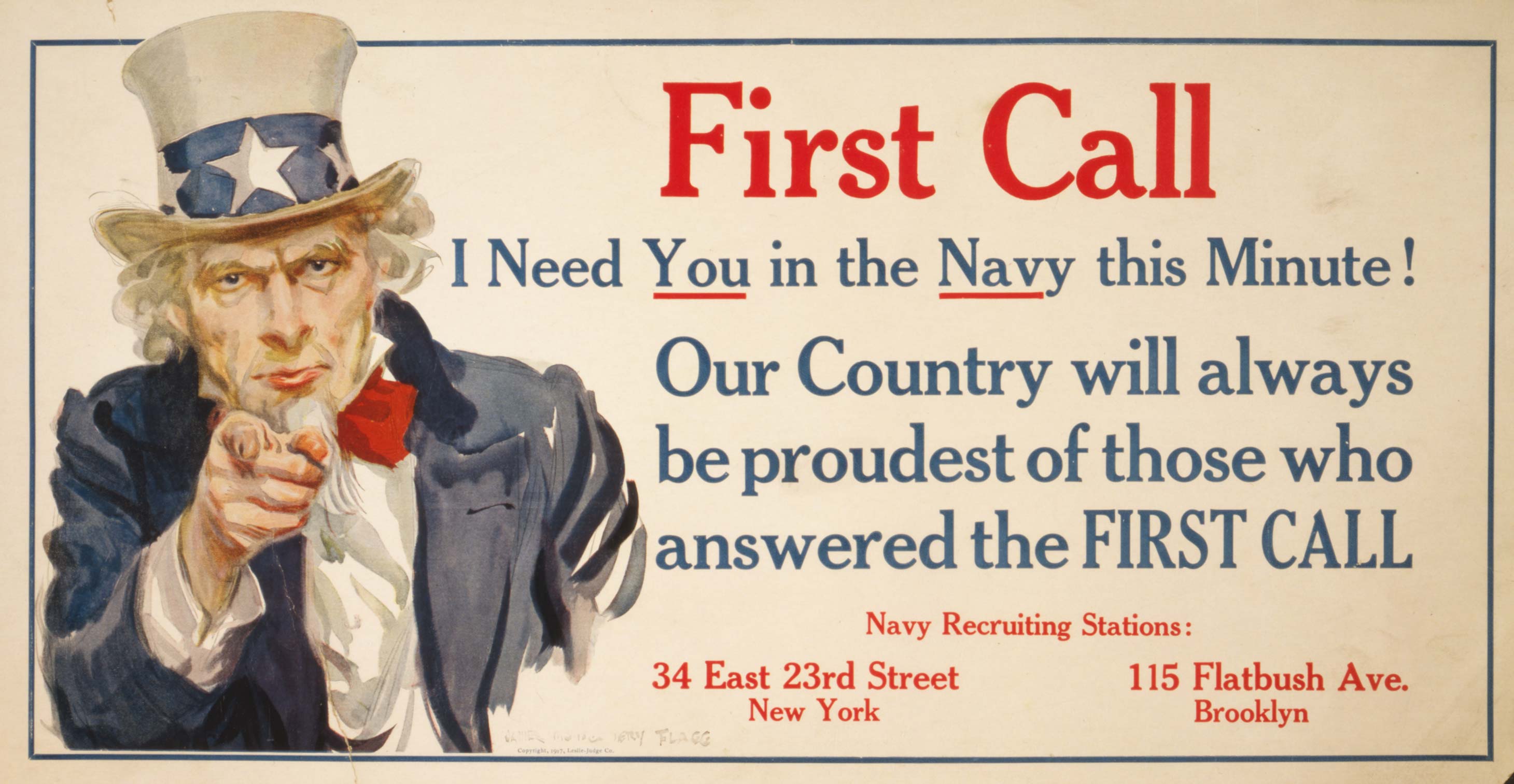Explainer: Why did the United States join World War One?
War in Europe began in the late summer of 1914 and from the outset the United States clung to a policy of strict neutrality. Despite the loss of American life as a result of the War on the Atlantic Ocean (such as the sinking of the Lusitania in May 1915), President Wilson constantly argued that the United States should remain out of the conflict. However, on 6 April 1917 the United States Congress declared war on Germany. By June 1917 the first American troops, 14,000 men of the American Expeditionary Force, arrived in France. By the end of the War in 1918 a million American troops were in Europe. So why and how did the United States go from a policy of neutrality to a fully blown engagement with the war in Europe?
Q: Why did the United States choose to stay neutral in
1914?
When war broke out in Europe in 1914 President Wilson declared
that the United States would follow a strict policy of neutrality.
This was a product of a longstanding idea at the heart of American
foreign policy that the United States would not entangle itself
with alliances with other nations. Put simply the United States
did not concern itself with events and alliances in Europe and
thus stayed out of the war. Wilson was firmly opposed to war, and
believed that the key aim was to ensure peace, not only for the
United States but across the world. To that end he sent a leading
aide, Colonel House, to Europe in the autumn of 1914 in an attempt
to broker a peace deal.
Q: Why didn’t German attacks on American shipping force
Wilson to act?
If the war had been solely fought on land it was likely that the
United States could have avoided the entanglement it feared.
However, a key part of the war was the battle on the Atlantic.
Here, shipping lanes were patrolled and attacked by German U-Boats
in an attempt to cut supply lines to Britain. Following its policy
of neutrality the United States initially attempted to trade with
both Britain and its allies as well as with Germany. However, in
practice the United States was only able to trade with Britain and
its allies, and all the goods sold (the value of which amounted to
$1.2 billion by 1916) had to be transported by ship across the
Atlantic. The German habit of attacking shipping meant that
American registered ships were sunk, and United States citizens
were killed (128 died when the Lusitania was sunk).
Wilson came under pressure to act after the sinking of the
Lusitania
and after protests from him, the Germans agreed to refrain from
attacking passenger vessels. By January 1917 however, German
military commanders argued that only an unrestricted blockade of
the Atlantic would achieve victory and once more targeted all
shipping. The decision undoubtedly edged the United States closer
to war in 1917.

|

|
L: An illustration from the New York Herald of the moment the torpedo hit the Lusitania in 1915 (Image: Library of Congress). Right: Anti-German propagana showing the ghosts of the children killed when the Lusitania went down haunting the Kaiser (Image: National Library of Ireland)
Q: What was the Zimmerman Telegram?
By the start of 1917 Germany was looking for additional allies. On
16 January 1917, the German Foreign Minister, Arthur Zimmerman,
sent a telegram to Mexico. In return for Mexico starting a war
against the United States, Germany promised to pay all associated
costs. The inflammatory telegram was intercepted by the British
who, in turn, passed it to Washington. The telegram was released
to the press on 28 February and published. How genuine
Zimmerman’s offer to Mexico was is hard to say, but the
telegram had a pronounced effect on turning American public
opinion against Germany.
Q: Why did Wilson decide to push for a declaration of
War?
The combined effect of the Zimmerman telegram and renewed attacks
on American shipping are seen by historians as the immediate
catalysts for pushing the United States to war. In addition there
is also a sense that the initial public support for neutrality had
wavered in the years since 1914. This combined with the massive
financial investment (both trade and loans) that the United States
had made in the allied nations meant that, no matter how it was
presented, there was a degree of self-interest in the the decision
to go to war. When President Wilson spoke to Congress on 2 April,
asking that they vote for a declaration of war, he argued that the
United States had no selfish interests in joining the conflict but
that American participation would make the world safer for
democracy. On 6 April the declaration of war was passed by
Congress.

President Woodrow Wilson (Image: Le Petit Journal)
Q: Was there opposition to the United States joining the
War?
By the spring of 1917 American public opinion appeared to have
supported the move towards a declaration of war. There were many
groups that opposed the war such as the small socialist party,
various church groups, sections of the women’s movement and
large swathes of the German-American population. The most
vociferous opposition to the war came from the Irish-American
population. They stressed a continuation of neutrality not because
they supported Germany in any way, but rather they opposed British
policy towards Ireland.
Q: What was the outcome of the decision to join the
War?
After the first American troops landed in Europe in June 1917 the
involvement of the United States escalated rapidly. By the end of
the war in November 1918 10,000 American troops were arriving in
France every day. Questions have been asked by historians as to
how effective the United States forces were on the battle field,
but acknowledge that the simple replenishment of the numbers of
allied forces at the front had a significant impact. At the close
of the war 53,402 Americans had been killed in combat and over
200,000 had been wounded. The entry of the United States meant
that President Wilson was able to play a key role in the peace
talks at Versailles that would redraw the map of Europe, and it is
clear that wartime manufacturing greatly benefitted the American
economy.
Prof. Mike Cronin is Academic Director at Boston College-Ireland and a Director of Century Ireland





















